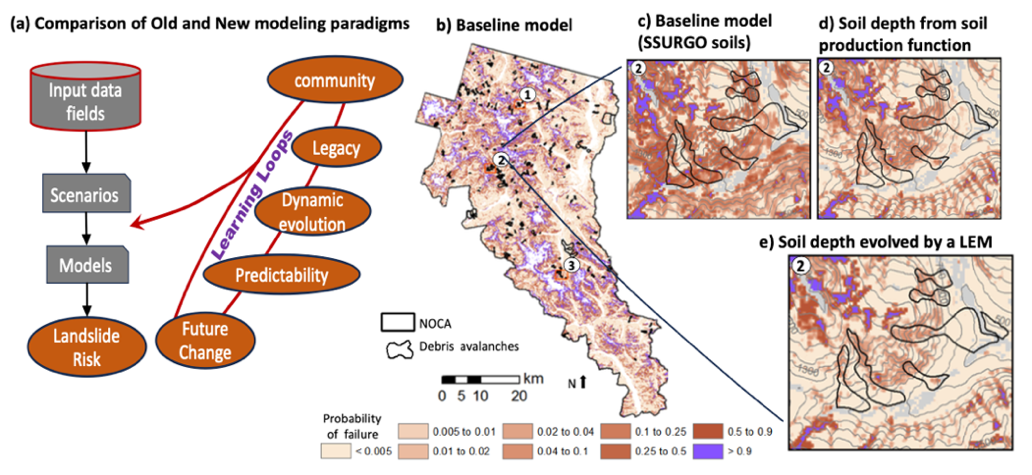
Future Environmental Change is about understanding how future changes in fire regime, rainfall, and vegetation impact the occurrence and predictability of landslides. It will leverage the process understanding and models developed across geologic and human time scales and develop numerical model experiments to make hazard forecasts using climate change scenarios until the end of the 21st century.
We will address the following questions in this research thrust:
Future Environmental Change Q1: How can we improve process fidelity and predictive skill of models to simulate the impacts of climate and environmental change on landslides and cascading geomorphic processes?
Future Environmental Change Q2: How can we refine our ability to project landslides and their associated hazards into the future and develop compound hazard scenarios?
Future Environmental Change Q3: How can we develop actionable model predictions at space and time scales relevant to our stakeholders' use?
